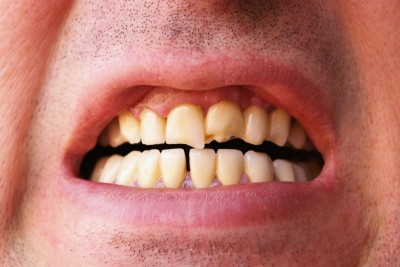Treatment for gum disease may lower glucose levels in type 2 diabetes sufferers

Researchers have discovered that routine treatment for gum conditions may lower blood glucose levels in those that suffer from type 2 diabetes.
The team, which includes experts from the Edinburgh Dental Institute, analysed data from seven studies, which focused on people aged over 16 with type 2 diabetes; all the participants had already been diagnosed with periodontitis, a condition which occurs when harmful bacteria attacks the gums and surrounding bone and soft
tissue. The relationship between patients with gum disease and adult onset diabetes is well-documented; people who eat a diet that is high in sugary, fatty foods are more likely to be overweight, which increases their likelihood of developing conditions including high blood pressure and cardiovascular disease, as well as type 2 diabetes and gum disease.
The research team examined the data and compiled a report based on 244 patients; the data came from the three most relative and reliable studies and concluded that treating the gum condition could have positive implications for people who suffer from type 2 diabetes.
Terry Simpson, lead author of the report, said that patients with type 2 diabetes should be encouraged to visit their dentist on a regular basis for routine oral health examinations and they should also be made aware of the positive consequences of seeking treatment for existing conditions.
The review has now been published in the most recent issue of the Cochrane Library and will be stored for further consideration; evidence based reviews form the basis of medical practice and this study may have some influence in the future.
Terry Simpson accepts that this review is only based on three studies and is unsurprised that some may be sceptical about the reliability or relevance of the study; however, he is optimistic about the review and believes it could help patients with type 2 diabetes in the future. Further studies in this area are set to be carried out.
Join this Discussion









